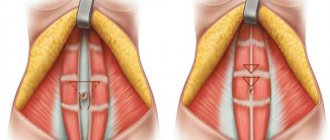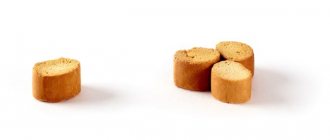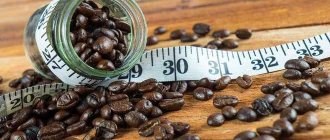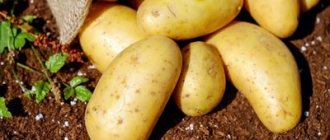Heavy periods are a problem that can make it difficult for a woman to function normally. And it's not just that during your period you go to the toilet too often, use too many hygiene products or constantly worry about stains on your clothes. This also increases the already unpleasant symptoms of menstruation and a general deterioration in well-being.
The source of heavy periods can be not only the individual physiology of a woman, but also various diseases. So if you're struggling with excessively heavy periods, consider whether it's time to see a doctor who can diagnose the causes and prescribe appropriate treatment.
Why does bleeding occur during menstruation?
This is a symptom of cyclic exfoliation of the endometrium, a special layer in the uterus. To understand how this happens, it is worth at least briefly tracing the individual phases of the menstrual cycle.
If we assume that the female cycle lasts on average 28 days (although the norm is from 21 to 35 days), we can distinguish four main stages:
- menstruation (on average 4-6 days);
- follicular phase (about 9 days);
- ovulation (1 day);
- luteal phase (approximately 14 days).
Phases of the menstrual cycle
Although it seems that menstruation is the end of the cycle, in reality this stage is considered its beginning. The first day of your period is also the first day of your cycle.
Female sex hormones stimulate the maturation of the egg, its release from the follicle, that is, ovulation, and the growth of the uterine mucosa, which prepares the organ for possible implantation of the embryo. At this time, the endometrium becomes adequately perfused, swollen and rich in nutrients.
If fertilization does not occur - and, therefore, the egg does not implant - the atrophic process of the uterine mucosa begins. Its surface layers begin to peel off and are brought out with blood. It is this moment that manifests itself in the form of monthly bleeding.
Unfortunately, bleeding is not the only symptom of menstruation.
The woman may also be accompanied by, among other things:
- pain in the abdominal cavity and lower spine,
- breast tightness, swelling and tenderness
- mood swings,
- slight increase in body weight,
- constipation, flatulence and diarrhea,
- general feeling of fatigue
- headache,
- acne.
Some symptoms may appear before menstruation and are associated with PMS - premenstrual syndrome.
It is important to understand that the symptoms of menstruation and the course of the entire cycle are an individual matter. It is worth adding that the first menstruation, called menarche, occurs in girls during puberty, between the ages of 9 and 16 years. The last is menopause, which occurs in mature women between the ages of 44 and 56 years.
You already know what your typical period should look like, but how do you know if your bleeding is normal?
Briefly about the physiology of women
During the menstrual cycle, hormonal levels are constantly changing. The level of estrogen and progesterone, the main factors affecting the reproductive system, either increases or decreases. The change in hormone levels occurs, as nature intended, not synchronously. But sometimes hormonal surges and surges are so sudden that the body's systems cannot adapt and respond appropriately. Therefore, there arise:
- abdominal pain, sometimes cramping, associated with contractile activity of the uterus;
- copious bleeding, increasing due to dilation of blood vessels, decreased elasticity of their walls, and decreased blood viscosity;
- nervous overstrain due to the increased work of all body systems, which causes an irresistible desire to eat a lot, without much consideration of whether it is healthy or not;
- digestive disorders, expressed in the absence of stool or, conversely, in its excessive softness and rapidity;
- weight gain, bloating, swelling.
To avoid such symptoms, you need to limit the range of products or add something to it that will help cope with the situation.
How do heavy periods differ from normal and scanty periods?
Determining too heavy periods is not as easy as it might seem. Indeed, how does a woman, and especially a girl entering puberty, know what normal blood loss is during menstruation?
In fact, the physiology of women is different. Some women's period can last three days with little bleeding, while other women struggle to change pads, tampons or menstrual cups, and the bleeding only begins to subside after 6 days. In each of these cases, menstruation can occur in accordance with accepted norms, and differences arise only due to the individual predispositions of the female body.
If we talk about norms, it is assumed that normal menstruation should last on average from 4 to 6 days, but not less than 3 and not more than 7 days.
What about the amount of discharge? Ideally, a woman loses from 30 to 80 ml of blood. In the medical literature, the normal flow of menstrual blood is allowed to range from 10 to 100 ml. A heavy period, called hypermenorrhea, is diagnosed when the volume exceeds 80–100 ml.
The length of the cycle and the menstrual period itself usually do not change with heavy flow, although many women who struggle with excessive menstrual bleeding also complain of long periods. If menstruation, although regular, is too heavy and longer than normal, we may also come across the terms menorrhagia or menometrorrhagia. They also indicate very heavy periods and are called hemorrhagic periods.
It is also worth mentioning here the term hypomenorrhea, which means too short a period. The diagnosis is made when a woman loses less than 50 ml of blood or sees small, sometimes brownish, bloody discharge instead of normal blood loss. The lean period can last from a few hours to 2-3 days and may be irregular.
But let's get back to heavy menstruation. You're familiar with book standards, but you're probably wondering how to measure them?
Why does your appetite increase?
On critical days, due to a hormonal surge, the hunger center is activated, increasing appetite. The body wants to eat, regardless of objective needs. And it doesn’t matter to him what you eat – salty or sweet, spicy or fatty. The main thing is to drown out this signal coming from the brain.
The opposite situation occurs much less frequently, but it can also happen. In this case, it is not the desire to eat a lot, but an abnormal aversion to food. This also negatively affects the functioning of the reproductive system and the condition of the body as a whole.
Therefore, on critical days you should not refuse food. You should also not overload your stomach with food. You need to eat properly and in portions, excluding what you cannot eat during menstruation. In this case, you can reduce your appetite and prevent the body from accumulating excess calories and fat deposits.
How to check whether menstruation is already pathological or still normal?
It is not so easy to independently check the cause of heavy menstrual flow. Of course, you can count the used pads, tampons or menstrual cups, but still the calculations do not give an accurate result. For example, because when replacing a hygiene product we do not wait until complete absorption is achieved, each woman has her own concept of the time of replacement.
If you suspect that your periods are too heavy, you need to contact a gynecologist, who will more professionally assess the situation and prescribe tests to make an accurate diagnosis. Before contacting a gynecologist, you need to monitor the progress of menstruation in advance, as well as look at other symptoms.
The first question to ask yourself is: have you always had heavy periods or did they start suddenly?
Excessive menstrual bleeding may be accompanied by:
- formation of clots;
- weakness and tendency to get tired easily;
- prolongation of menstruation - 7 days or more;
- frequent need to replace hygiene products every 1-2 hours;
- severe menstrual pain in the lower abdomen and lower back.
Menstrual pain in the lower abdomen and lower back
. In addition, you may notice:
- pallor and dryness of the skin and mucous membranes;
- weakened condition of hair and nails;
- headache;
- problems with concentration;
- cardiopalmus;
- shortness of breath.
This means that excessive blood loss could lead to anemia. And this, of course, cannot be ignored.
Even if there are doubts, nothing prevents you from making an appointment, especially since heavy menstruation may indicate the presence of various disorders or diseases in the body.
Healthy foods
Among the foods necessary for the body, there are those that can cause undesirable effects, but are still useful on critical days, for example, legumes and cabbage. They contain a lot of calcium, vegetable protein, and fiber necessary during menstruation. They have antioxidant properties. If the doctor’s recommendations do not limit the consumption of such vegetables, then you can safely use them in your diet. Otherwise, it is better to stick to a more correct menu. You can get all the necessary microelements and nutrients from many foods - for example, nuts, fish, leafy vegetables, berries, fruits. When thinking about what to buy for the table, you need to strive to improve the condition of your body, then your well-being and health will definitely return to normal.
Causes of heavy menstruation – when are they natural and when are they a symptom of a disease?
The tendency to have heavy menstruation can be, on the one hand, physiological, i.e. a natural feature of the female body, and on the other hand, indicate the occurrence of various anomalies or diseases.
Some women simply lose more blood during their periods, and this doesn't necessarily mean anything alarming. However, it is always worth thinking about the reasons.
Before we look at the list of potential medical conditions that can lead to heavy menstrual bleeding, it is worth mentioning that heavy periods after age 40, as well as the first ones during puberty, can be completely natural. In both cases, hormones are responsible for them, although their actions have different functions.
In young girls, the menstrual cycle is just stabilizing, and its duration, as well as the course of menstruation itself, may be abnormal. There may be heavy periods, but also scanty bleeding.
Menopause is a time when the endocrine system gradually suppresses the functions of the ovaries, which is also associated with changes in the regularity of menstrual cycles and their frequency or intensity of bleeding. Women during menopause may have long and heavy periods, on the one hand, and shortened ones, on the other, sometimes with spotting instead of bleeding.
There can be many other reasons for heavy periods. Basic:
- hormonal disorders,
- inflammation of the ovaries,
- polycystic ovary syndrome,
- ovarian cysts,
- endometriosis,
- endometrial polyps,
- uterine fibroids,
- pelvic inflammatory syndrome,
- thyroid disease,
- infections, including sexually transmitted diseases,
- blood diseases, including bleeding disorders,
- neoplastic changes in the genital tract, including endometrial cancer, cervical cancer,
- anatomical defects in the structure of the female genital tract,
- constant stress, neurosis and depression,
- miscarriages,
- ectopic pregnancy,
- anovulatory cycles,
- liver disease,
- kidney problems,
- diabetes mellitus, hypertension and other systemic diseases,
- long-term use of hormonal contraceptives,
- use of intrauterine contraceptives.
Uterine fibroids
As you can see, the above list is quite long and in any case not exhaustive.
If you have heavy periods, do not panic, but monitor your condition and, if necessary, consult a gynecologist.
What to eat during menstruation
Eating fruits and vegetables is encouraged on any day of the menstrual cycle. This diet is especially indicated during menstruation. A diet containing the following list of products will help you benefit and cope with discomfort:
- Lettuce, sorrel, spinach, dill, green onions.
- Radishes, turnips, rutabaga, carrots, beets, radishes, chard, Jerusalem artichoke, sweet potatoes, celery root.
- Baked potato.
- Fatty, sea fish, shellfish.
- Sea kale.
- Nuts of all kinds.
- Raisins, dried apricots, figs and other dried fruits.
- Flax and sesame seeds, linseed oil.
- Oatmeal and buckwheat porridge.
- Lean meat, such as poultry.
- Bananas, avocados, oranges, watermelons, melon.
- Low-fat fermented milk products, small amounts of hard cheese.
- Apples, currants and other berries.
- Honey.
Since beets promote increased peristalsis, some doubt whether they should be included in the diet during menstruation. But these fears are unfounded. Beetroot reduces pain from abdominal cramps, so beetroot salad is quite acceptable on menstrual days. You should also eat beets before your period. It increases hemoglobin during menstruation and promotes the removal of toxins, which is very important.
Drugs for heavy menstruation - pharmacological treatment of heavy menstrual bleeding
Treatment for heavy periods always depends on the source of the problem. If this is just a matter of physiology, and the consequences of bleeding are not devastating to health, then any pharmacological treatments are unlikely to be needed. However, if the patient is diagnosed with anemia that develops as a result of heavy menstruation, the doctor will prescribe appropriate therapy. The gynecologist will recommend iron supplements and other medications used to treat anemia.
Iron supplement
Hormone therapy is also used in the medical treatment of heavy menstruation. The effect of this treatment is the cessation of heavy menstruation to light bleeding. This is a common effect of taking hormonal pills, including birth control or hormonal patches.
If for any reason you cannot or do not want to use hormone therapy, your doctor may prescribe specialized bleeding medications.
Can I use over-the-counter medications for heavy periods? Only if their causes are not related to specific diseases, which is confirmed by the results of ultrasound and tests.
Non-steroidal anti-inflammatory drugs can also be used to relieve symptoms of excessively heavy periods.
However, if there is a medical condition underlying heavy menstruation, the doctor will determine the most appropriate treatment method after a thorough diagnosis.
Follow a diet
If by diet we mean a healthy diet, then it must always be followed. Menstruation is not a reason to binge on junk food. If a diet means a half-starved existence on several foods for the sake of rapid weight loss, then you should never follow it (we have already written why), periods have nothing to do with it.
During menstruation, it makes sense to eat foods high in iron, such as liver or meat, to slightly compensate for possible anemia. So don't miss out on a good beef steak.
How to Reduce Heavy Periods on Your Own – Home Remedies for Excessive Bleeding
What can you do to make your periods less heavy? If your heavy periods are not the result of a specific medical condition, you can reduce the bleeding with home remedies.
The following may help reduce bleeding during menstruation:
- A properly balanced diet, which should include fish, legumes, eggs;
- Avoid alcohol and energy drinks during this time and limit the consumption of strong coffee;
- Refusal of excessive physical activity, hot baths and sunbathing, warming the abdominal area with a heating pad, which, on the one hand, can relieve pain, and on the other, increase bleeding;
- Taking painkillers that do not contain acetylsalicylic acid;
- Drinking infusions of ginger, nettle, chamomile, and yarrow extract.
Important! If iron drops significantly during heavy menstruation, you need to supplement this element.
ONLINE REGISTRATION at the DIANA clinic
You can sign up by calling the toll-free phone number 8-800-707-15-60 or filling out the contact form. In this case, we will contact you ourselves.
If you find an error, please select a piece of text and press Ctrl+Enter
What not to eat during menstruation
You should, first of all, avoid heavy foods, marinades, preservatives, and fast food. Although during menstruation many people have a strong craving for sweets, you should not overindulge in them either; at least for the first few days it is better to do without sweets and cakes, as well as sugar. Fast carbohydrates affect insulin production and disrupt overall hormonal balance.
In some cases, it is not recommended to consume chocolate on menstrual days. What is this case, why, when and what kind of chocolate is harmful? During menstruation, small quantities of this product can be consumed, but only its black version, with a high cocoa content - it contains magnesium necessary for menstruation, and few harmful carbohydrates. Chocolate is dangerous for those who are at risk of developing mastopathy. Milk chocolate, especially in large quantities, should not be eaten during menstruation.
In order not to cause bloating, it is necessary to reduce the consumption of the following foods in the first days of menstruation:
- Soybeans, peas, beans, chickpeas.
- Cabbage.
- Carbonated drinks.
- White bread and pastries.
- Pasta made from soft grains.
- Whole milk, heavy cream.
You can reduce pain due to uterine contractions by reducing your intake of:
- Parsley.
- Tomatoes.
- Garnets.
- Grapefruit.
The following restrictions reduce the volume of menstrual flow:
- Refusal of fast food and strong tea and coffee, alcohol.
- Absence of pickles, smoked meats, marinades and spicy dishes on the menu. In general, it is advisable to avoid salt or reduce its consumption during menstruation.
- Protecting the body from hypothermia and overheating, especially from taking hot baths, baths, saunas or showers.
Drink alcohol
Alcohol is not contraindicated during menstruation. To drink or not to drink is always a matter of general health and personal decision; periods have nothing to do with it, but there is one interesting pattern.
Alcohol affects a woman’s condition differently depending on the phase of her cycle. Despite the fact that the level of ethanol in the blood is standard when taking the same amount of alcohol in different phases of the cycle, tolerance (alcohol tolerance) changes in different phases.
Tatiana Rumyantseva
This change is especially significant for women, who usually have good tolerance, that is, they can drink a lot and not get drunk. They experience a sharp decrease in tolerance during menstruation. Tatyana Rumyantseva warns: if you drink the same amount of alcohol as a week before your period, you can end up much drunker.
Take a bath and go to the sauna
In fact, you can not only take a bath, but even need it. Firstly, you need to maintain hygiene. You can wash yourself first and then go into the bath if blood in the water bothers you. Secondly, due to blood loss and dysmenorrhea (the so-called painful periods), a woman can become very tired, and baths and saunas help to relax.
Heat and sweating alone will not cause significant harm during menstruation. You will have to focus on your feelings: if there is a lot of blood loss and deterioration in health, there is no need for excess water loss and being in a hot room. With ideal health and the use of tampons or cups, everything is quite possible.
Tatiana Rumyantseva
Dietary recommendations
Follicular phase
At the first stage, processes are activated that help the egg mature. The hormone estrogen plays a key role during this period. During the follicular phase, a woman has a good mood, accelerated metabolism and intense fluid outflow. The period is ideal to start losing weight.
At this time, the body needs protein products of animal origin and vitamin C. Red meat, liver, green salads, pomegranate seeds, bell peppers will bring the greatest benefit. Legumes, wheat bran, oats, pumpkin and flax seeds, broccoli, cauliflower, avocado, citrus fruits, plums, cherries, and kiwi contribute to normal ovulation.
You should eat avocado during the follicular phase
Ovulation
During this phase, estrogen levels remain high. It is recommended to include foods containing fiber, vitamin C, E, zinc, folic acid, and Omega-3 in your diet.
The most useful: eggs, shrimp, tuna, strawberries, raspberries, pineapple, figs, avocados, bell peppers, eggplants, spinach, tomatoes, almonds, pine nuts, peas, beans, chicken.
During ovulation, it is recommended to include shrimp in your diet.
When planning pregnancy during this period, it is better to avoid drinking caffeine.
PMS
During the third phase, progesterone production increases. The body retains fluid and fat. The amount of energy decreases, the mood drops. Typical PMS symptoms appear: strong appetite, irritability, weight gain, bloating, desire to eat something sweet, spicy or salty.
The diet for PMS includes foods containing tryptophan. This amino acid is used to produce serotonin, the pleasure hormone.
Amino acid Tryptophan
Foods that help relieve PMS symptoms: eggs, seafood, fish, turkey, low-fat cottage cheese, cheese, oatmeal, sesame seeds, walnuts. To relieve PMS, it is helpful to increase your intake of B vitamins.
The body needs potassium and magnesium, so it is recommended to eat dried apricots, dates, bananas, almonds, as well as bread, pita bread, cereal, whole grain muesli and chia seeds. Products that are contraindicated: coffee, strong tea, alcohol and simple carbohydrates.
During PMS, the body needs potassium and magnesium
It is advisable to eat small portions 5 times a day. Breakfast - porridge and whole grain bread. Lunch - meat or fish with side dishes of cereals. Snack: dried fruits.
When deciding what to drink during PMS, opt for mineral water and unsweetened juices. If there is breast swelling, you should pay attention to the amount of fluid consumed. The optimal daily intake is 1.5 liters.
Menstruation
During this phase, the body loses a lot of blood. The condition is aggravated by severe spasms.
It is recommended to consume pomegranates during menstruation
The body requires heme and non-heme iron. Buckwheat, pomegranate, cranberries, blueberries, liver, offal, cashews, seaweed, legumes, seafood are the foods most suitable for menstruation. It is recommended to increase the amount of water consumed, eat only warm food and review your daily routine.
Phases of the cycle and nutrition in accordance with them
Women's well-being largely depends on hormones. During menstruation, hormonal levels change, various processes occur that can both worsen well-being and cause inexplicable desires in eating. Every woman has at least once noticed an increased desire to eat during the onset of her menstrual cycle. Desires are different for each menstrual period, so you should pay special attention to your diet during menstruation.
- 1-6 days. The body feels tired, exhausted, energy is lost, and you constantly want to sleep. At this time, nutritionists recommend giving preference to calcium, drinking more herbal teas, and giving up animal fats, which will only worsen your health. Sweets should also be excluded from the diet; raisins, dried apricots and other dried fruits are allowed in limited quantities;
- 7-12 days. At this time, there is a surge of energy, you want to eat much less compared to the first week of the menstrual cycle. You need to eat little, mainly foods that contain folic acid. The diet should consist of green vegetables and fresh herbs, wheat bran. It is important to completely avoid trans fats and fast foods. They will burden the stomach, slow down metabolic processes, and contribute to the gain of body fat. This period, on the contrary, is the best for losing weight;
- 13-15 days. At this moment, ovulation occurs; it requires increased attention in nutrition and complete saturation. Nutritionists recommend eating wheat bread and brown rice at this time. You should avoid sweetened foods because they will negatively affect your hormonal levels. If the goal is to get pregnant, the diet should contain products such as sunflower oil, vegetable oils, whole milk, soy, fatty fish;
- 16-28 days. After ovulation, if pregnancy does not occur, the woman observes a deterioration in well-being, irritability, a large appetite, and an increased desire to consume prohibited foods. The diet should include foods that contain a lot of fiber and magnesium. You need to eat bananas, corn, sprouted grains, green vegetables, legumes, bran, dried fruits and other foods containing magnesium. It is worth completely removing salt from the diet, it retains fluid and promotes weight gain.
Perform breast ultrasound and mammography
The menstrual cycle affects the breasts, so the picture of ultrasound examination of the breast during and after menstruation is different Features of breast ultrasound image and its correlation with estradiol and progesterone level in different phases of menstrual cycle in normal women. . Moreover, if your breasts usually hurt, then the changes will be more noticeable on an ultrasound. Therefore, it is better to do such a study after the end of menstruation, but in the first half of the cycle.
Mammography is available Accuracy of Screening Mammography Varies by Week of Menstrual Cycle. do it in the first week of the cycle, and the cycle begins on the first day of menstruation. But this is not a guarantee. With Mammograms, Timing May Matter. ideal result and not a prerequisite for examination. So if you are referred for a mammogram and your period is not coming soon, then do not wait for the perfect day and just get examined.











